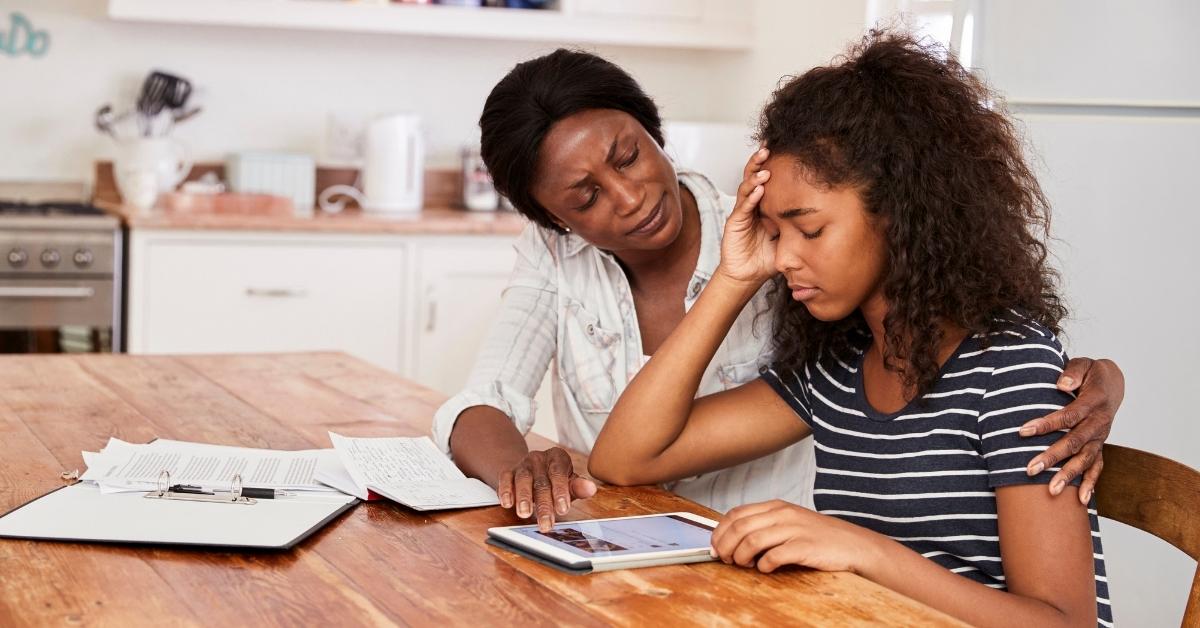From YM
US – Going through different emotions is part of life. We all feel sad or low sometimes, and this can be a natural and appropriate response to what’s happening around us. Often, the passing of time and support from people we’re close to can help things feel better again.
When a young person is feeling depressed, sadness and low feelings do not change or go away with time. These feelings can become overwhelming and stop them from doing or enjoying things they normally would.
Knowing that your child is experiencing this can be incredibly worrying or distressing as a parent. Remember that lots of young people go through depression, it’s possible for your child to come out the other side and feel okay again, and there are places where you and your child can find support.
What are the symptoms of depression?
While every young person is different and will express their feelings differently, your child may be feeling depressed if they are:
- withdrawing, or avoiding friends or social situations
- finding it hard to concentrate, or losing interest in schoolwork
- not wanting to do things they previously enjoyed
- feeling irritable or angry
- feeling tearful, miserable, lonely or hopeless
- feeling empty or numb
- being very self-critical
- sleeping more or less than normal
- eating more or less than normal
- feeling tired or not having any energy
- wanting to self-harm
How can I help my child?
Try to open up a conversation about what’s going on. You might start by letting them know that you’ve noticed they don’t seem very happy at the moment, voicing your concerns in a caring and non-judgmental way. You can find more tips on starting a conversation with your child here.
Listen and provide emotional support. Try not to ask too many questions, come up with quick solutions or gloss over their sadness. Empathise with how they’re feeling – letting them know they can talk to you as often and for as long as they need to.
Try again another day if they don’t want to talk. Finding it difficult to talk or reach out is often a part of feeling low or depressed – and it can be especially difficult for young people to talk about these kinds of feelings. Let them know you’re there when they’re ready to talk.
Think together about whether there’s anything in particular that’s making them feel this way. This could include a problem with a friendship or family relationship, feeling bullied or left-out at school, feeling overwhelmed by school work, struggling with a change such as divorce or separation in the family, or a combination of things. Are there changes that could be made at home or school that would make things easier?
If they don’t feel able to talk to you, encourage them to speak to someone else – while reassuring them that you’ll still be there. Let them know about the phone, webchat, email and text support they can access from the services listed at the end of this guide.
Support them to keep routines, activities and connections with other people going as much as possible. Make opportunities for seeing friends and family, and encourage them to do the things they enjoy – whether that’s exercising, listening to music, doing something creative like colouring or drawing, watching a favourite film, reading a favourite book or going for a walk with you.
Help them to do the daily things that support our wellbeing. This includes getting up at a regular time, eating regular meals, doing exercise, drinking water, spending quality time with loved ones and getting enough sleep.
Reassure them. Let them know you love them, these feelings won’t last forever, and that you can find support to help things feel better.
Don’t ignore worrying signs, hoping they’ll go away. Trust your gut feeling – you know when something’s just not right.
Seek professional help if you’re worried about your child’s mental health. Some children and young people will need professional and specialist help to feel better. They may benefit from a specific diagnosis or a treatment such as talking therapy. You can find more information about this below.
Young people’s advice for others going through this:
– Speak to your doctor or a trusted adult about how you’re feeling.
– Don’t be afraid to cry, especially if you’re male – it helps to release emotions and you’ll feel better afterwards.
– I’ve found that identifying behaviours that aren’t beneficial to you, like endlessly scrolling through Instagram before bed and sleeping late, can be really helpful. It’s hard to force good habits, but it can do wonders for your overall mood.
– Try to keep going outside, even if it’s just a short walk, it can really help your mood to lift.
– Find a distraction technique – we all have different ones; it could be jogging, music, art, reading etc.
– Realise that how you’re feeling won’t last forever and there’s always something to look forward to.

